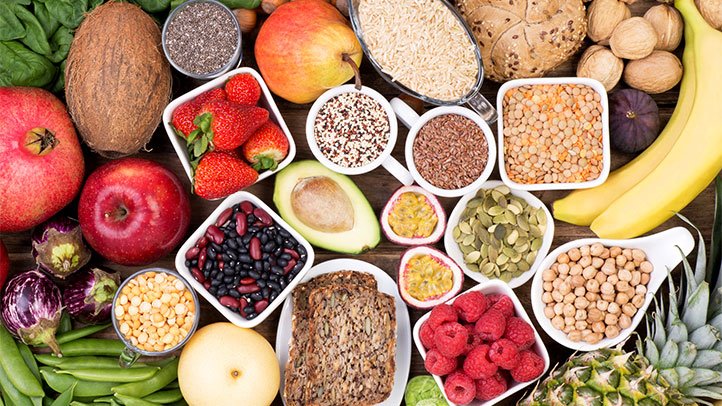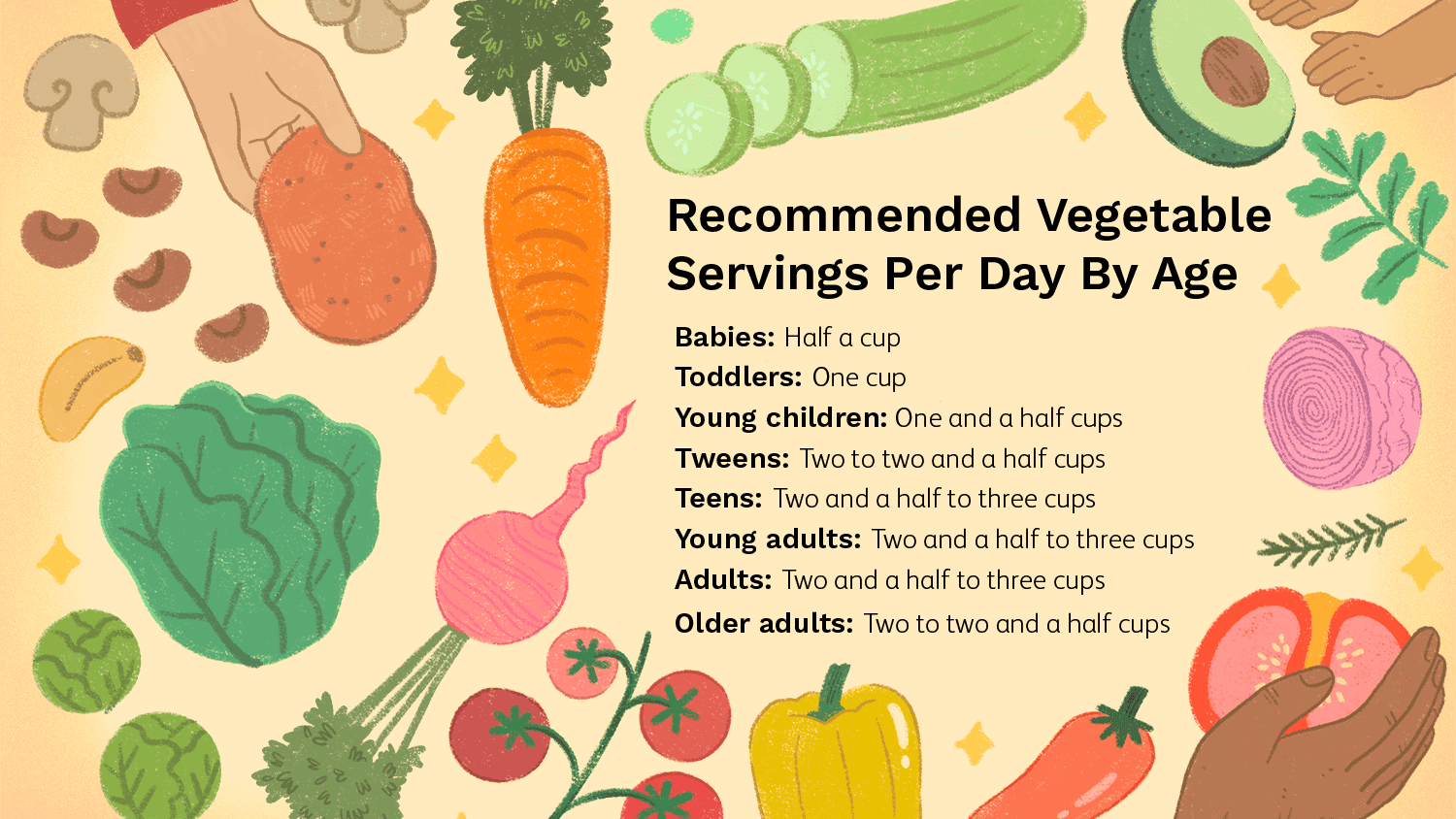
The effects of too much sodium are widely recognized. The amount of sodium that a person consumes directly correlates with their risk of suffering from hypertension and cardiovascular disease. You can reduce your sodium intake by eating less salty snacks and adding less salt to your meals. You should also limit the intake of processed and fast foods. Listed below are some strategies for reducing sodium consumption:
Your water retention will increase if you have more sodium in your bloodstream. This causes your bloodstream to expand, and it will expand. The risk of developing heart disease is increased when blood vessels are over saturated. Plaque can build up and stretch, making them more vulnerable to damage. You may also feel bloated from too much sodium. There are many health effects that too much sodium can have on your body. It is crucial to limit your sodium intake to avoid developing serious health problems.

Too much sodium can cause serious health problems. Too much sodium can lead to problems in your health. Studies show that high levels of sodium are linked to high blood pressure. While sodium is essential for nerve function and muscle function as well as the regulation of body fluids, it is better to limit its intake. It is best to keep your daily intake under two thousand mgs.
Too much sodium can not only affect the brain but also cause problems with the heart. High sodium diets are a risk factor in cardiovascular disease in the United States. The Centers for Disease Control and Prevention recommend Americans do not consume more that 1,500 milligrams per day. For most people, this should be less than two thousand mg per day. However, some foods are more sodium-rich than others.
It is important not to forget that excessive sodium can cause problems in your cardiovascular system. It may actually be beneficial for your health. A person with high blood pressure, for example, should reduce their sodium intake by 2,000 mg daily. Lower blood pressure is another benefit. Reduce salt intake to lower your risk of getting heart disease. And this is only the beginning. Limiting sodium is essential if you wish to enjoy healthy living.

The number of sodium-related deaths continues to rise. High levels of sodium are increasing the chances of developing heart disease or high blood pressure. By reducing sodium intake, you can reduce the risk of heart problems. Avoid salty foods. You also need to avoid processed foods. You should rinse canned vegetables and legumes before they are eaten. You can rinse your legumes and vegetables first if you don't want to wash them.
FAQ
Eggs are good for us.
The egg contains all the nutrients required by the human body. It helps to maintain strong bones and healthy hearts and lungs and stabilize blood pressure.
Eggs are a great source of protein, vitamins A and B12, D. E. K, calcium, magnesium, selenium and riboflavin.
The egg yolk has high cholesterol. However, the egg yolk is low in cholesterol. Eggs have less saturated oil than many other foods.
They are also low in calories and sodium. They are also very versatile because you can cook them any way you want. They can be poached or scrambled, baked, hard-boiled, or fried.
They are delicious and very easy to prepare.
Two whole eggs should be eaten each day. If you dislike eating eggs, you should add them to your diet.
Essential nutrients are found in eggs. Include eggs in your daily diet.
What is the best exercise routine to build muscle?
Two main types of exercises are required for building muscle mass. These are called compound movements and isolation. While compound movements focus on a single muscle, isolation exercises are focused on specific muscles.
Choose exercises that test all your major muscle groups to improve your workouts. This will ensure that you work hard every session.
MyFitnessPal, an app that tracks your actions, can be used to help you keep track. It can track everything from calories burnt to weight lifting. It also allows you to create meal plans customized for your goals.
What does butter do for men?
Butter is one the most nutritious sources of saturated oils. This type of fat contributes to healthy skin, hair, and stronger bones.
Butter also contains vitaminK, which prevents bleeding after cuts and bruises. Vitamin K and vitamin C work together to prevent bruising.
Butter is also rich with minerals, such as calcium and phosphorous. These elements help to build stronger bones and teeth.
However, butter has some drawbacks. Butter contains high levels of cholesterol. Studies show that too much cholesterol can increase your risk of developing heart disease.
Butter also contains high amounts of saturated fat, which contributes to obesity and increases cholesterol.
If you have to have butter, spread it on bread instead of dipping it in soup or salad. Bread absorbs more oil than potatoes or pasta.
What's the Best Way to Lose Weight?
Losing weight can be difficult. Many people give up easily because they don't know what to do.
However, there are some simple steps that you can take to shed those extra pounds.
First, ensure you eat fewer calories that you burn. If you consume more calories than what you burn, you will gain weight.
To burn all those calories, you should also start exercising. You have many options, including walking, biking, dancing and jogging.
Third, stop smoking and drinking alcohol. These habits lead to a higher intake of calories than usual.
Fourth, cut down on junk food and fatty foods. You can replace them by healthier choices such as fruits, vegetables or lean meats.
Fifth, you should change your lifestyle to adopt new habits. For example, you may need to get up early every morning to exercise before work.
Sixth, be disciplined and stick to your diet plan.
You can also burn excess calories by joining a gym, or taking an aerobics course.
You will quickly notice the difference by following these simple tips.
How many calories should I eat daily?
This can vary from person to person. On average, 2000 to 2500 calories are consumed per day. It is important to consider your lifestyle and determine how many calories you'll need.
Statistics
- Are You One of the 20% of Guys (mh.co.za)
- By John Thompson Take a whopping 38% off a set of PowerBlock Pros. (menshealth.com)
- According to the American Academy of Dermatology (AAD), men over 50 are at a heightened risk of developing it. (healthline.com)
- According to the American Heart Association, blood pressure should be checked at least once every two years, beginning at age 20. (my.clevelandclinic.org)
- 10 pounds in a month is likely during a lean bulking phase, especially for beginners. (muscleandstrength.com)
External Links
How To
What nutrients does a man need daily?
For healthy growth and development, men need to eat a balanced diet. Vitamins, minerals, vitamins, nutrients, carbohydrates, fats and fiber are all essential for the body.
You also need specific nutrients for different times in the day. You can see that your body uses energy to make hormones. When you wake up, your body uses protein to repair damaged tissue and build muscles.
Your body stores extra energy as glycogen and breaks down fat at night. Your body still requires sufficient nutrients and calories even though it needs less calories. If you feel hungry, you may consider having a snack during the evening.
You need to eat enough carbs and protein when you exercise. After a hard workout, muscle soreness may occur.
To prevent this, you must consume carbs and protein within 2 hours of training. Your body will break down stored glycogen to provide glucose for energy.
Additionally, it is important to eat protein right away after your workouts are over. This prevents the breakdown of muscle tissue that occurs while you sleep.
Your body produces lactic acid during high levels of physical activity. Your body can build up lactic acid in the bloodstream which causes fatigue. Eat foods high in carbohydrate, such as fruits, vegetables, to avoid this.
Carbohydrates provide energy for your body to recover after strenuous exercise.
Additionally, lean meats, fish and eggs, dairy products, yogurt, cream, cheese, yogurt and beans can be added to your diet.
All these foods are high-quality sources of protein. Protein is important for muscle growth and repair. It provides amino acids that your body needs in order to produce sexhormones and testosterone.
A healthy skin, nails and joints requires sufficient dietary fats. Healthy men need between 20% - 35% of the total caloric intake to be fat.
Fat helps protect your heart health and prevents cancer. It also keeps your brain functioning properly.
Most of the fat you need can be obtained from vegetable oils, including sunflower oil (or soybean oil), peanut oil, peanut oil, soybean oil, and peanut oil.
These oils are rich in monounsaturated essential fatty acids (MUFAs). MUFAs can lower cholesterol levels and reduce inflammation. They also protect your cells from damage caused by free radicals.
Saturated fats (SFAs), are found mainly in animal products such as meat, milk products, and butter. SFAs raise LDL ("bad") cholesterol and increase triglycerides. They can also increase weight and reduce belly fat.
Polyunsaturated fats (PUFAs) are found in plant-based sources like vegetable oils, nuts, seeds, and grains. PUFAs improve cardiovascular function and decrease inflammation. They help to control blood sugars and cholesterol.
Erectile dysfunction can often be a problem for men who have low HDL ("good") levels of cholesterol. Consuming high amounts of saturated fats can increase bad cholesterol and lower good cholesterol.
Men who eat a lot of red meat or pork develop prostate problems because they contain large amounts of nitrates. High temperatures can cause nitrates to become nitrosamines. These compounds can cause cancer.
Many processed meats are high in nitrites, and other dangerous chemicals. These chemicals should be avoided.
According to the American Heart Association, you should limit your consumption of red meat to no more that 2 meals per week. Instead, choose poultry or fish, beans, tofu and whole grain bread.